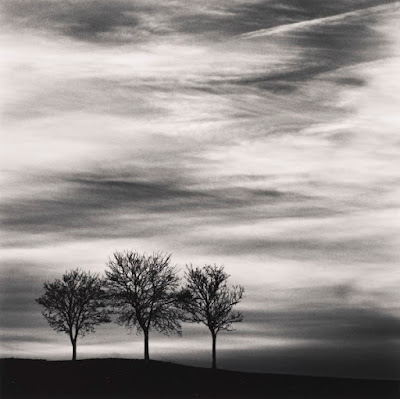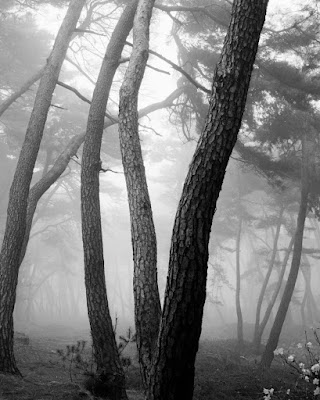 |
| Albert Renger-Patzsch Beech Wood in November, Arnsberg Forest 1936 gelatin silver print Victoria & Albert Museum, London |
 |
| Paul Caponigro Fog and Trees, Redding, Connecticut 1968 gelatin silver print Princeton University Art Museum |
 |
| David Husom Tree Study I 1973 gelatin silver print Minneapolis Institute of Art |
 |
| Harry Callahan Chicago 1950 gelatin silver print Art Institute of Chicago |
 |
| Michael Kenna Three Trees at Dusk, Fain-lès-Moutiers, Bourgogne, France 2014 gelatin silver print Cincinnati Art Museum, Ohio |
 |
| Bae Bien-U SNM 011V (Pine Trees) 2014 gelatin silver print Victoria & Albert Museum, London |
 |
| Bae Bien-U SNM 012H (Pine Trees) 2014 gelatin silver print Victoria & Albert Museum, London |
 |
| Brett Weston Tree 1975 gelatin silver print Phillips Collection, Washington DC |
 |
| Howard Bond Basswood Tree 1982 gelatin silver print Art Institute of Chicago |
 |
| Harry Cowles Mann Untitled ca. 1915 gelatin silver print Chrysler Museum of Art, Norfolk, Virginia |
 |
| Emil Otto Hoppé Winter in London 1910 gelatin silver print Tate Gallery |
 |
| William Craven, 2nd Earl of Craven View of Ashdown Park, Berkshire ca. 1855 albumen print Rijksmuseum, Amsterdam |
 |
| William Henry Fox Talbot Oak Tree in Winter ca. 1842-43 salted paper print Getty Museum, Los Angeles |
 |
| Alvin Langdon Coburn Kensington Gardens, November 1910 platinum print Victoria & Albert Museum, London |
 |
| Emily K. Herron Untitled before 1893 cyanotype Chrysler Museum of Art, Norfolk, Virginia |
 |
| Robert Gibbings Wisley 1922 color woodcut (poster) Victoria & Albert Museum, London |
Natural History
The names of things receive in language cause:
the weight of summer within temperate spring,
vermiculate, mimetic, surfeiting
the ground with the notation of its flaws.
In music the occasion disappears,
the page it mimics temporal as lust,
the cumulative moment in arrears.
'By meeting, all our transigeance is lost.'
August: the cursive grasses parching are
précis of us, more distant, singular.
And each is fool to other – in such wise
baffling the will's late instinct to despise.
– Carol Johnson (1960)
"Look in your last Commonweal and see a poem by a girl named Carol Johnson. She is the only writer I ever initiated a correspondence with."
– Flannery O'Connor (1956)